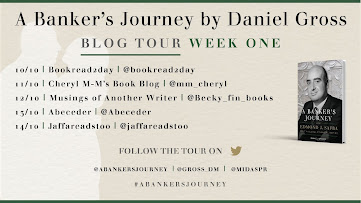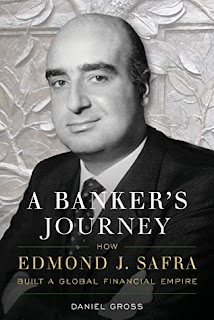About the Author
Daniel Gross is one of the most widely read writers on finance, economics, and business history. Over the past three decades, he has reported from more than thirty countries, covering everything from the dotcom boom to the global financial crisis and the Great Recession of 2008-2009.
Gross worked as a reporter at The New Republic and Bloomberg News, wrote the "Economic View" column in The New York Times, and served as Slate's "Moneybox" columnist. At Newsweek, where he was a columnist and correspondent, he authored seven cover stories. He is a bestselling author of eight books, including Forbes Greatest Business Stories of All Time; Generations of Corning; Dumb Money: How America's Greatest Financial Minds Bankrupted the Nation; and Better, Stronger, Faster: The Myth of American Decline and the Rise of a New Economy.
Gross was educated at Cornell University and holds an M.A. in American history from Harvard University. His great-grandparents immigrated to the United States from Aleppo and Damascus. Follow @grossdm on Twitter
About the book
Who was Edmond J. Safra? "The greatest banker of his generation," in the estimation of a former World Bank President. The founder of four massive financial institutions on three continents, and a proud child of Beirut's Jewish quarter. An innovative avatar of fiancial globalization, and a faithful heir to a tradition of old-world banking. The leading champion and protector of the Sephardic diaspora.
In A Banker's Journey, financial journalist and historian Daniel Gross, who, like Safra, traces his heritage to Aleppo, Syria, reconstructs the public life of an intensely private man. With exclusive access to Safra's personal archives, Gross tracks the banker's remarkable journey from Beirut to Milan, Sao Paulo, Geneva, and New York - to the pinnacle of global finance.
Edmond Safra was fifteen in 1947, when his father sent him to establish a presence in Milan, Italy. Fluent in six languages, and with an eye for value, managing risk, and personal potential, Safra was in perpetual motion until his tragic death in 1999. The modern, global financial empire he built was based on timeless principles: a banker must protect his depositors and avoid excessive leverage and risk. In an age of busts and bailouts, Safra posted remarkable returns while rarely suffering a credit loss.
From a young age, Safra assumed the mantle of leadership in the Syrian-Lebanese Jewish community, providing personal aid, supporting the communities that formed in exile, and championing Sephardic religious and educational efforts in Israel and around the world. Edmond J. Safra's life of achievement in the twentieth century offers enduring lessons for those seeking to make their way in the twenty-first century. He inspired generations to make the world a better place.
Review
I kind of low-key love the fact the author manages to make biography about a financial wizard, a banker who influenced the world of finances, and left his mark upon the world, not only a learning experience - it's also a fascinating read.
I think it's important to note the relevance of the phrase old-school banking. It's at the core of the story. In Safra's case this compass was routed in cultural and historical roots - reputation, trust and relationships between banker and customer. This is a complete contradiction to the way banks are run in 21st century. Nameless faces, profit margin for the bank, and an absolute risqué attitude towards money belonging to other people, ergo customers. Deposits instead of loans. It is also the reason persistent rumours started to swirl or should I say the start of a campaign to discredit someone who had become a powerful fixture in the financial world - he was the root of the structure he created.
I can't even imagine being so that that you're tasked with setting up banks as a teenager. It seems, so bizarre, especially when you look at young people today. Safra was a young man influenced by family structure, culture and events in history that displaced many people. It's a tragedy that his live ended so brutally, and his death takes up a good part of the second half of the book. Why? Because it became fodder for conspiracy theorists, for gossipmongers and sensationalists, which the author addresses. He also takes those theories and misinformation and counters it with facts.
Saying that, I can absolutely understand why the world would believe he had become a victim of his success, power, wealth and core ethics of Safra banking. Equally I also understand that his family wants the world to remember the man behind the wall of myths and gossip - I think Edmond would want that too.
Buy A Banker's Journey at Amazon Uk or go to Goodreads for any other retailer. Publisher: Radius Book Group; pub date 13th October 2022. Hardback - £24.99. Buy at Amazon com.



No comments:
Post a Comment